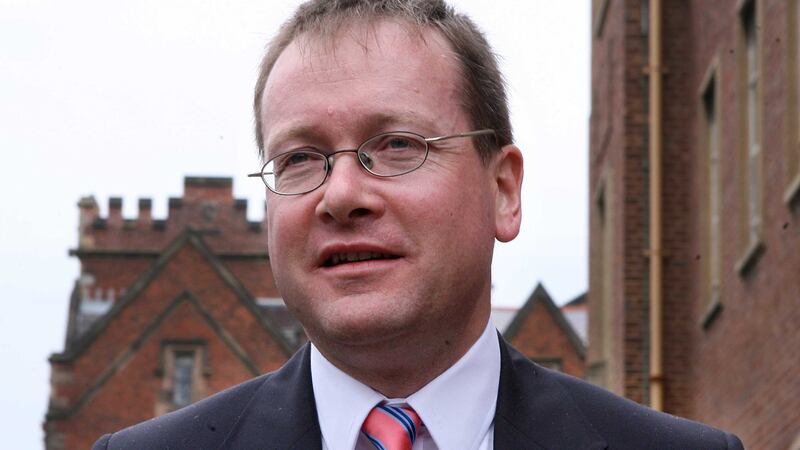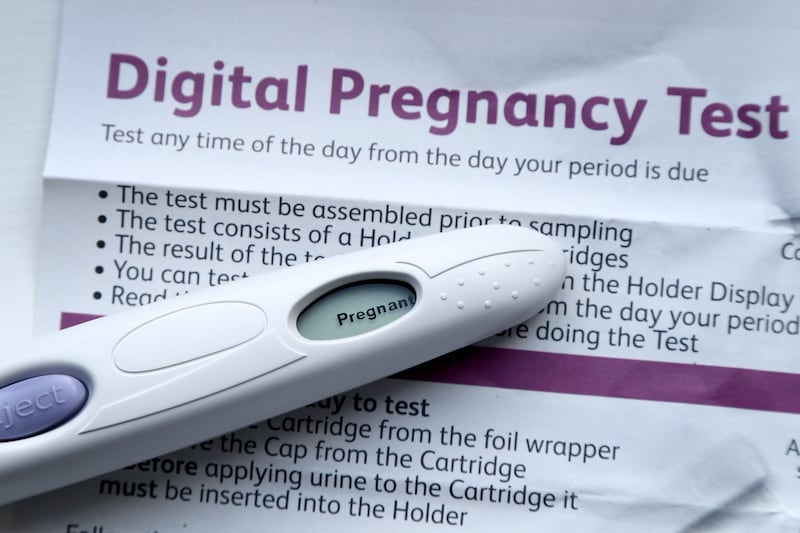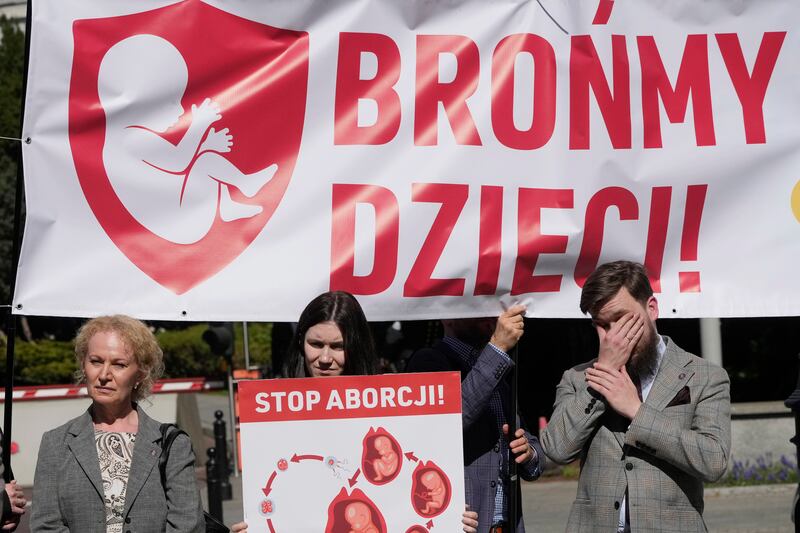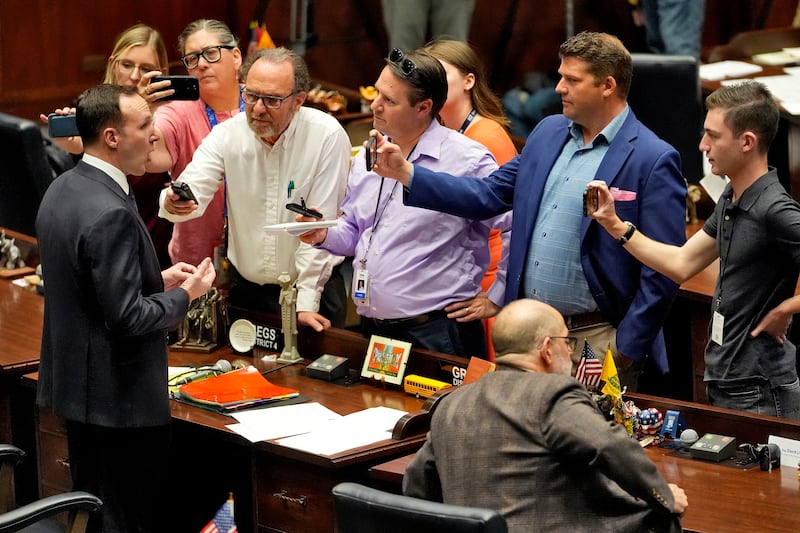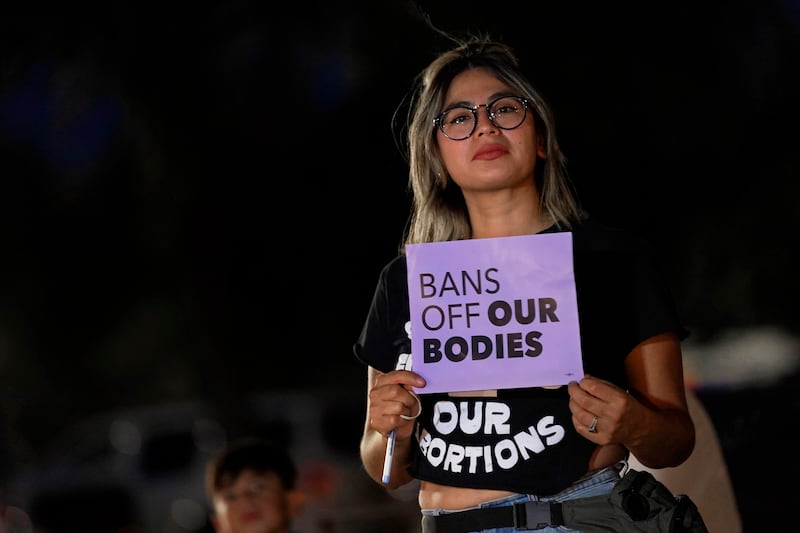A proposal to relax the north's strict abortion laws could breach international human rights legislation, the Attorney General has warned.
John Larkin QC said lifting the ban on terminations in cases of fatal foetal abnormality could contravene obligations under the United Nations Convention on the Rights of Persons with Disabilities (UNCRPD).
His concerns were outlined in a letter to the TUV leader Jim Allister ahead of a debate on the contentious issue at the devolved Stormont Assembly.
Mr Larkin said: "Providing for a criminal law exception for 'fatal foetal abnormality', as proposed by this amendment, provides unborn children diagnosed with such a disability with much less protection under the law of Northern Ireland than those without such a disability."
Unlike other parts of the UK, the 1967 Abortion Act does not extend to Northern Ireland where abortions are illegal except where the life or mental health of the mother is in danger.
Anyone who performs an illegal termination could be jailed for life.
Proposals to lift the prohibition in cases where a foetus has no chance of survival outside the womb and where a sexual crime has been committed are among a number of amendments to the Justice Bill being considered by MLAs.
In his letter, Mr Larkin highlighted cases in Spain and Austria where the UNCRPD committee has recommended that states should not abolish any distinctions related to abortion in foetuses with disabilities.
He added: "In my view those unborn children who are 'doomed to die' or are otherwise regarded by the proposers of this amendment as unworthy of life because of the nature of their disability are equally protected by the UNCRPD provisions as those who are not so clinically assessed."
Conscience provisions for medics who have religious or ethical objections to participating in abortions are also inadequate, according to the attorney.
Last month Mr Larkin lodged an appeal against a High Court ruling that found the failure to provide exceptions to the law in certain limited circumstances breached human rights legislation.
In cases of fatal foetal abnormality, Judge Mark Horner concluded that the mother's inability to access an abortion was a "gross interference with her personal autonomy" and a disproportionate burden was placed on victims where a sexual crime has occurred.
The judge's declaration of incompatibility did not immediately lift the current ban but placed an onus on the Stormont Assembly to legislate on the contentious issue.
The DUP has already indicated its intention to vote down the proposals to facilitate the establishment of a working group to examine the issue and report back in six months' time.
A DUP spokesman said: "We believe that this issue should best be dealt with in a measured way rather than in haste and without the benefit of appropriate scrutiny. Rushed law can often turn out to be bad law. Indeed we understand that the Attorney General has concerns about these amendments. This justice bill was not intended for this purpose."
The SDLP has also said its members would be opposing the "flawed" amendments.
A party statement said: "The SDLP recognise that this is one of the most sensitive issues faced by women here. We recognise it needs to be addressed.
"We are today calling on the minister of health to publish the new guidelines as a matter of urgency. This is what senior medics have asked for. We support that call.
"We note the working group being set up by the minister for health. The SDLP will engage with others in this process and we encourage all interested and affected parties and individuals to do so too."
